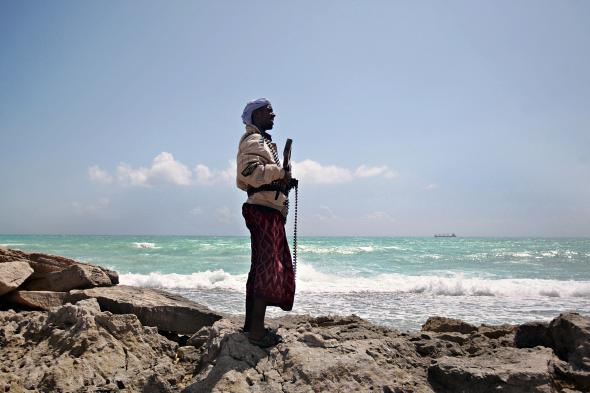The International Maritime Bureau is out with its statistics for maritime piracy in 2013, and the sharp decline we’ve been seeing in the number of pirate attacks in recent years is continuing. There were 264 pirate attacks in 2013, a 40 percent drop since piracy’s peak in 2011.
The big driver of this trend is the decline off the coast of Somalia. The IMB reports that only “15 incidents were reported off Somalia in 2013, down from 75 in 2012, and 237 in 2011.” Only two vessels were actually hijacked off Somalia in 2013, and both were released within a day. The IMB attributes the drop to a number of factors, including “the key role of international navies, the hardening of vessels, the use of private armed security teams, and the stabilizing influence of Somalia’s central government.”
Meanwhile, West African piracy, particularly in the oil-rich waters off Nigeria, Gabon, the Ivory Coast, and Togo, accounted for 19 percent of the world’s pirate attacks last year. (Malaysia and Indonesia also reported a significant number of attacks.)
As U.S. Naval Intelligence Officer Mark Munson pointed out in an interesting essay recently, it’s a bit misleading to compare Somali piracy to what we’re seeing in the waters around Nigeria. “Attacks off West Africa described as piracy often occur in the territorial waters of Nigeria or its neighbors, not on the high seas,” and as such may not even technically qualify as “piracy” under international law.
That these attacks are happening within the territory of states—and ones that, unlike Somalia, are capable of defending their sovereignty—significantly affects the international response to them. In other words, the type of international response that seems to have quelled the Somali pirates can’t work everywhere.
It’s also interesting to note how quickly and effectively Western countries can get together to address a security threat in the developing world … when it involves people from those countries stealing our stuff.
